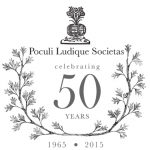John Heywood’s John John is a favourite of PLS, and I am pleased to have this opportunity to explore this text as the latest director of the play. John John offers a bawdy inversion of the moral form, while it subverts the structural promise of romantic marital bliss found in typical comedy. In this early 16th-century play, we find familiar types: the cuckolded husband, the shrewish wife, and the less-than-holy priest. The latter two take great enjoyment out of mocking and beguiling poor John John, the husband. For his part, John John just isn’t quite as clever as he would like to be. More brawn than brain, he is easily deceived by his wife and the priest as he gets sidetracked with problem-solving tasks and faulty reasoning–which he revels in for a good part of the opening of the play! But if this play echoes the morality plays, there is no obvious moral message revealed in it. None of the characters gain any self-knowledge, nor do they learn any moral lessons. For instance, contrasted to her forebears, like the shrewish Mrs Noah of the mystery cycles or her progeny Kate in Taming of the Shrew, Tyb, the wife, does not repent her ways. Instead, the farcical logic of this world lacks moral resolution and offers in its place a circular rhetoric that promises to play out unceasingly. Structurally, the play ends as it begins: with the hapless John searching for his wife who he fears is with the priest, and the audience is left with the sense that this is a daily occurence which unfolds the same way each time. In John John we find “happily ever after” has gone badly amiss!
— KDR

